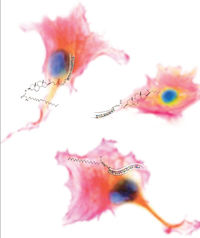Akzo Nobel's Wijers: "Top institute for white biotech vital to drive Dutch industrial competitiveness"
Advertisement
Akzo Nobel CEO Hans Wijers has thrown his full support behind proposals to set up a Dutch center of excellence to oversee the various ongoing research initiatives in the field of industrial biotechnology, known as 'white biotechnology.' Speaking at a special workshop held at the Kluyver Laboratory for Biotechnology - part of Delft University of Technology in the Netherlands - Wijers said that white biotechnology - using biotech to produce fine and bulk chemicals - had a crucial role to play in further differentiating the Dutch chemicals industry, including Akzo Nobel.
"This form of biotechnology can play an essential role in future R&D and production, not only in our Chemicals businesses, but also within our Coatings and Pharmaceuticals activities. It will fuel further innovation and reduction of costs," he explained. "Biotechnology is also helping Akzo Nobel to achieve its sustainability targets. We have set a number of corporate targets for 2010 relating to the emission of greenhouse gases, wastewater, and the amount of non-reusable waste, which are very ambitious. These targets can only be attained if alternative, biotechnology-based production processes are developed and implemented."
One of the ongoing white biotechnology research programs with which Akzo Nobel is already involved is the recently launched B-Basic program. Supported and funded by the Dutch government by a grant of EUR 25 million, the initiative is being run by a consortium of universities, research institutions and industry and focuses on the development of new bio-based production concepts for the chemical - and energy - industry. Akzo Nobel has also invested EUR 5 million in the program. The Company has identified a number of key areas, such as research into novel absorption, extraction and membrane technologies for use in a variety of chemical processes, as well as research into controlled biosynthesis of co-polymers aimed at drastically reducing production waste, for example in the manufacture of heparin.
















































